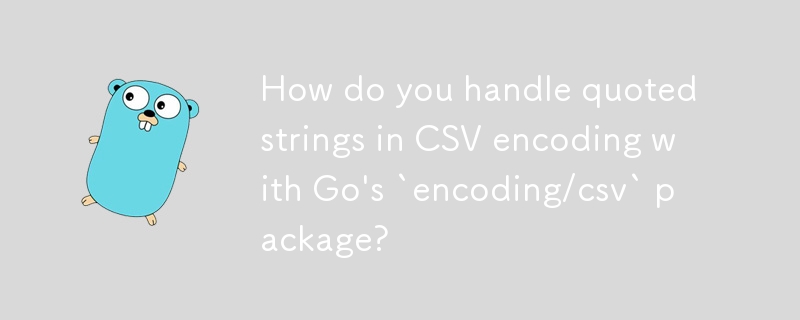
Go中的CSV编码:处理带引号的字符串
在Go的encoding/csv包中,处理带引号的字符串有时会导致意想不到的结果。编写 CSV 记录时,了解编码特殊字符(例如双引号)的标准要求至关重要。
根据 CSV 规范,字段中的双引号字符必须使用第二个双引号字符进行转义。出于解析原因,此转义序列是必需的。
示例:
<code class="go">import "encoding/csv"
record := []string{
"Unquoted string",
"Cr@zy text with , and \ and \" etc",
}
writer := csv.NewWriter(writer)
writer.Write(record)</code>上面的代码将写入一个带有双引号转义的字符串:
<code class="csv">Unquoted string "Cr@zy text with , and \ and \" etc"</code>
避免额外引号:
要避免在读取 CSV 文件时插入额外引号,应采取以下步骤:
代码示例:
<code class="go">func writeCSV() {
writer := csv.NewWriter(writer)
s := "Cr@zy text with , and \ and \" etc"
record := []string{
"Unquoted string",
"Quoted string",
fmt.Sprintf("%q", s),
}
writer.Write(record)
}
func readCSV() {
reader := csv.NewReader(reader)
records, err := reader.ReadAll()
for _, record := range records {
// Printed records automatically have double quotes unescaped by the CSV reader.
fmt.Println(record)
}
}</code>输出:
[Unquoted string Cr@zy text with , and \ and " etc] [Quoted string Cr@zy text with , and \ and " etc]
以上是如何使用 Go 的 `encoding/csv` 包处理 CSV 编码中带引号的字符串?的详细内容。更多信息请关注PHP中文网其他相关文章!




